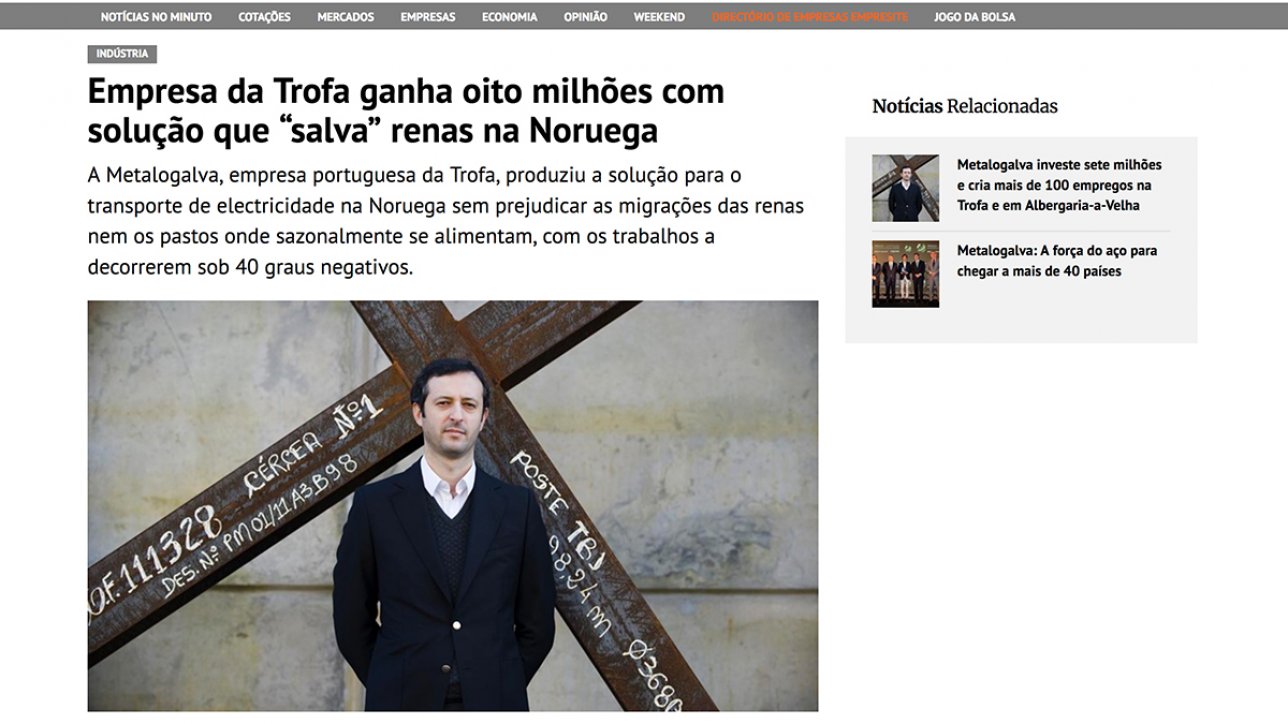According to António Pedro, the “project will run until 2019”, with the “possibility of extending it for another two years”, in a deal that for the Trofa company “represents an income of eight million euros”. Taking place in the northern region of Norway, the work “is being carried out in areas subject to environmental protection due to reindeer migration, with the aim of interfering as little as possible with the animals’ movement,” he added.
Reindeer migrate in spring and autumn, traveling north in the first season in search of cooler temperatures and returning after the summer when the climate further north becomes too cold. Imitating their Swedish neighbors, the Norwegians “built roads in the snow to transport the materials, forgoing the summer to carry out the construction,” explained António Pedro. “Instead of using concrete, because at temperatures of minus 40 it is impossible to concrete, they started using metal tube foundations, produced at Metalogalva, for the power transmission poles,” he said.
Winner of a “tender which, in addition to defining the price and delivery time, focused a lot on the ecological footprint of transportation”, the Portuguese company had to “indicate how it would carry out the logistics part in order to estimate carbon dioxide emissions”. “We had to minimize land transport as much as possible, and the approved method cannot be changed until the end of the contract,” said the director.
The more than 1,000 contracted foundations, in which four are made for each pole and the poles are 500 meters apart, “means that the distance to be covered is around 125 kilometers, and 50% of the material has already been supplied,” he said. But it wasn’t just the transport issue that meant Metalogalva had to update its processes, and António Pedro emphasized that in order to respond, “equipment was created just for the production of one of the components, allowing all four holes to be drilled at once, reducing manufacturing time by 25%”.
The effort to “respond to this part of the project” includes “the use of robots”, thus ensuring that “the budgeted cost is maintained”. “The biggest challenge, in technical terms, was in galvanizing, in the corrosion protection process, because once the foundations are buried they don’t give access to maintenance, and we were required to provide anti-corrosion protection up to three times longer than stipulated, which points to an average durability of 20 years in a normal environment,” he concluded.

